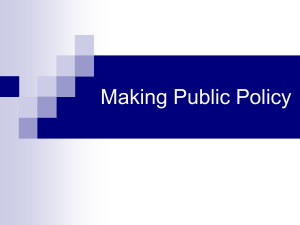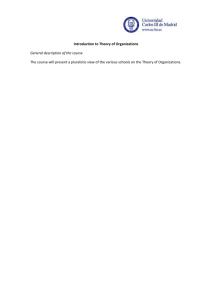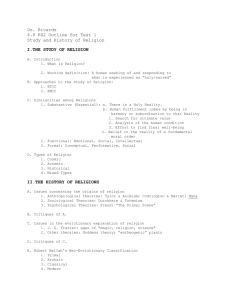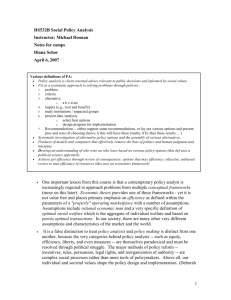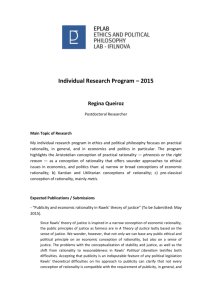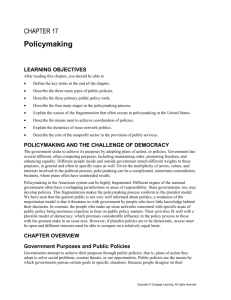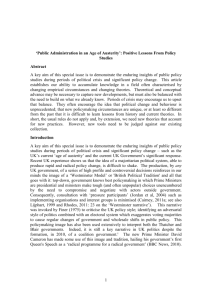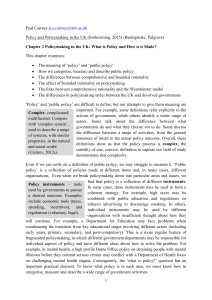Ph.D. Comprehensive Examination PUBLIC POLICY January 2014
advertisement
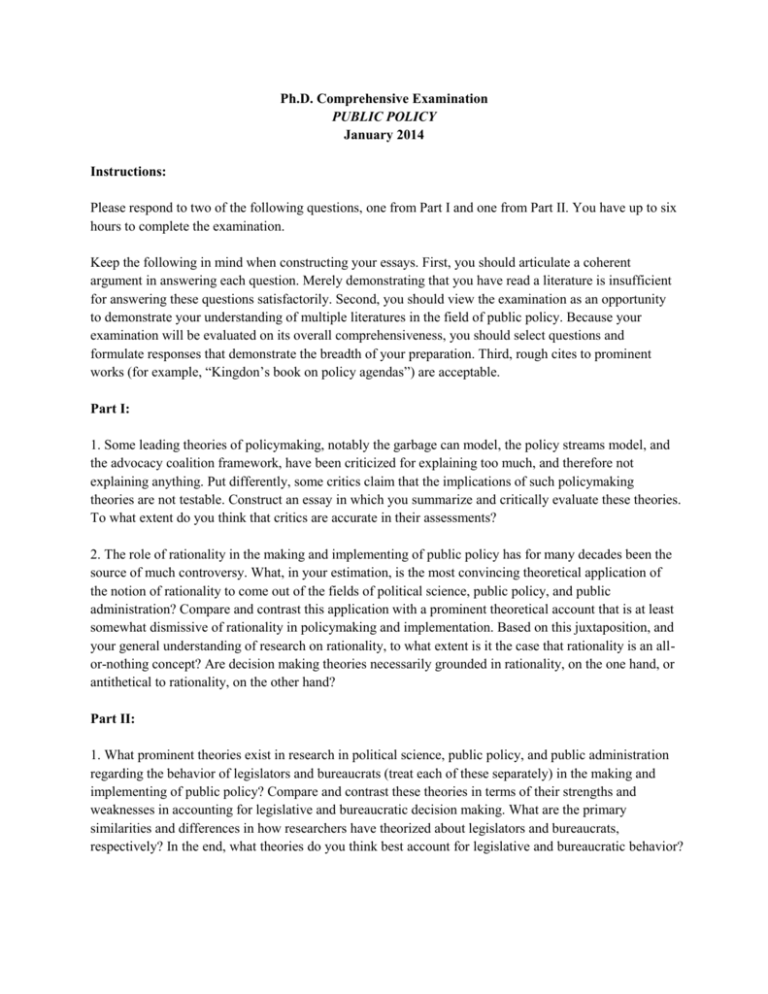
Ph.D. Comprehensive Examination PUBLIC POLICY January 2014 Instructions: Please respond to two of the following questions, one from Part I and one from Part II. You have up to six hours to complete the examination. Keep the following in mind when constructing your essays. First, you should articulate a coherent argument in answering each question. Merely demonstrating that you have read a literature is insufficient for answering these questions satisfactorily. Second, you should view the examination as an opportunity to demonstrate your understanding of multiple literatures in the field of public policy. Because your examination will be evaluated on its overall comprehensiveness, you should select questions and formulate responses that demonstrate the breadth of your preparation. Third, rough cites to prominent works (for example, “Kingdon’s book on policy agendas”) are acceptable. Part I: 1. Some leading theories of policymaking, notably the garbage can model, the policy streams model, and the advocacy coalition framework, have been criticized for explaining too much, and therefore not explaining anything. Put differently, some critics claim that the implications of such policymaking theories are not testable. Construct an essay in which you summarize and critically evaluate these theories. To what extent do you think that critics are accurate in their assessments? 2. The role of rationality in the making and implementing of public policy has for many decades been the source of much controversy. What, in your estimation, is the most convincing theoretical application of the notion of rationality to come out of the fields of political science, public policy, and public administration? Compare and contrast this application with a prominent theoretical account that is at least somewhat dismissive of rationality in policymaking and implementation. Based on this juxtaposition, and your general understanding of research on rationality, to what extent is it the case that rationality is an allor-nothing concept? Are decision making theories necessarily grounded in rationality, on the one hand, or antithetical to rationality, on the other hand? Part II: 1. What prominent theories exist in research in political science, public policy, and public administration regarding the behavior of legislators and bureaucrats (treat each of these separately) in the making and implementing of public policy? Compare and contrast these theories in terms of their strengths and weaknesses in accounting for legislative and bureaucratic decision making. What are the primary similarities and differences in how researchers have theorized about legislators and bureaucrats, respectively? In the end, what theories do you think best account for legislative and bureaucratic behavior? 2. In recent years, the importance of networks in policymaking has increased substantially. For example, it is now the case that the vast majority of public programs require the involvement of multiple federal agencies, private sector entities, and/or nonprofit organizations during implementation. Construct an essay in which you address the following questions regarding networks. What are the key characteristics of networks? How are networks similar to and different from other forms of making policy (e.g., markets and hierarchies)? In what specific ways have networks been utilized in policymaking? What are the strengths and weaknesses of various theories about networks? In what ways have researchers applied concepts of network theories in empirical research? How successful have these empirical applications been in producing novel insight into policymaking? 3. One common perception is that government organizations and programs are “immortal.” Compose an essay, grounded in research in political science, public policy, and public administration, that responds to this perception. In constructing this essay, be sure to address the following specific questions: Are there differences in the immortality of organizations, on the one hand, and programs, on the other hand? What factors distinguish organizations and programs that are difficult, if not impossible, to terminate from those that are more readily eliminated? What are the respective roles of politicians and administrators in determining the lifespans of organizations and programs? What are the advantages and disadvantages of organizations and programs that approach immortality?


